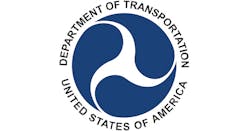The Inspector General for the U.S. Department of Transportation says that labor, inflation, and limits on capacity pose challenges to the implementation of the Infrastructure Investment and Jobs Act (IIJA) over the course of its five-year rollout.
In a memo on the subject, Eric J. Soskin said IIJA “presents significant implementation and oversight challenges, particularly in the midst of national workforce, manufacturing, and economic strains.” The memo identifies three challenges.
Challenges facing IIJA implementation
- Identifying and mitigating risks of fraud, and understanding the risks for unique policy or financing arrangements
- Meeting workforce and coordination needs, including finding skilled workers and maintain the workforce, and addressing the impact of limited industry capacity and rising prices
- Awarding, administering, and overseeing billions of dollars in grants, including developing oversight procedures and monitoring financial data
The memo then addresses shortages of skilled workers in the construction industry, which it says could affect the ability to “deliver successful projects on time and on budget.” It cites the increased pressure put on contractors by the additional Federal spending included in IIJA.
The inspector general noted the DOT’s own challenges in finding qualified workers, citing previous reports that found that “DOT contracting officers—who approved numerous contractual actions and obligated millions in Department funds—were not always in full compliance with certification and warrant requirements.”
How inflation will affect IIJA
On the cost side, the memo cites the low numbers of bids for projects, which can increase costs. “Prices for contracts with one or two bids averaged 11 percent higher than prices for contracts with three bids,” according to a 2012 audit of previous contracts.
Inflation will also “likely blunt the impact of all IIJA investments,” said the Inspector General. Not only will initial costs be affected by inflation, but also ongoing cost increases will be implemented through change orders, according to the memo. This could result in project delays in addition to cost increases.
Domestic sourcing requirements for construction materials may be limited by the capacity of American industries to supply those materials, the memo suggests. It notes that the DOT recently established a six-month waiver of these requirements to allow for industry to “prepare for the inclusion of this new category of materials.” The industry has requested an extension of this waver, according to the memo, and asked for analysis of domestic manufacturing capabilities.
How will domestic capacity affect IIJA?
The DOT issued a Request for Information, the memo says, to gather input on:
- How the new requirement should be implemented and interpreted,
- The availability of construction materials in the United States that are commonly used on transportation projects, and
- The potential impacts on DOT-funded projects.
Source: U.S. Department of Transportation Office of Inspector General





